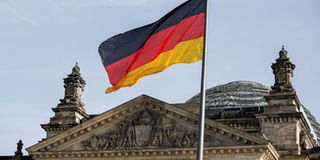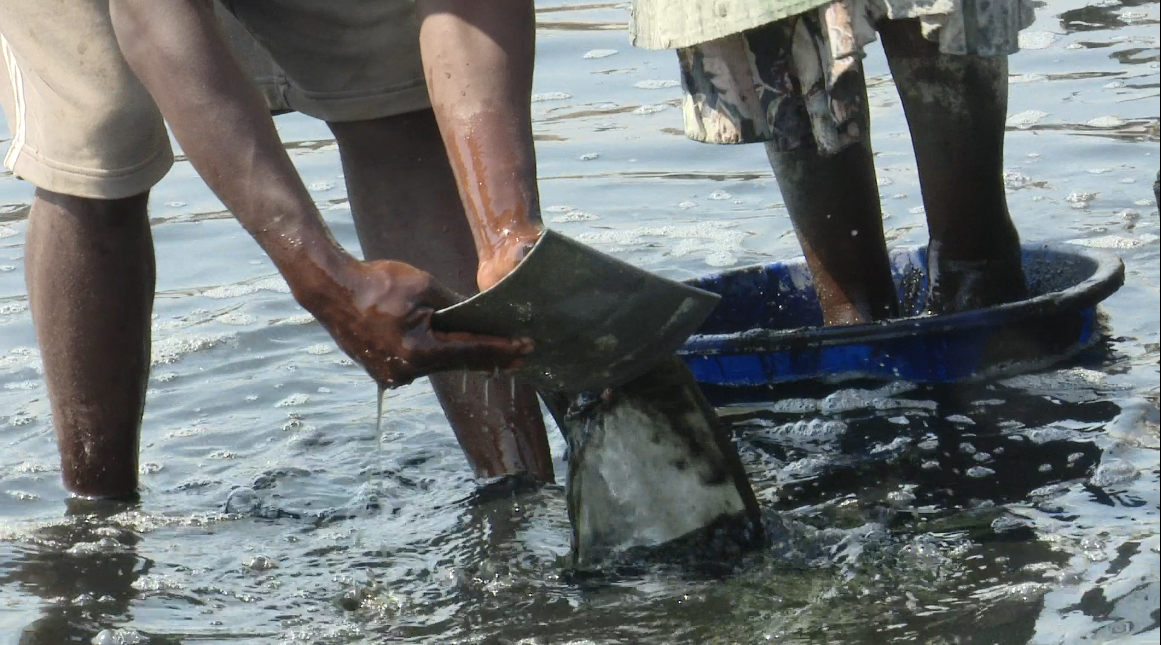Prime
What is at stake in Germany's election?

In this file photo taken on February 24, 2021 the German national flag flys outside the Reichstag building which houses the Bundestag (the German lower house of parliament) in Berlin. PHOTO/AFP
What you need to know:
- Germany heads into an election on September 26, 2021, the most suspenseful vote in a generation in Europe's biggest economy that will see Chancellor Angela Merkel step down after 16 years in power.
- These are just some of the questions thrown up by Sunday's hotly contested election.
What will Germany look like after Angela Merkel's era and how will its role evolve in Europe and beyond?
Will the centre-left SPD manage to wrest power from the conservatives? Will the Greens or the liberals be part of the next government?
These are just some of the questions thrown up by Sunday's hotly contested election.
Why is Merkel leaving?
Merkel, 67, announced that her current and fourth term in office would be "the last" in October 2018, when her CDU had just suffered a regional electoral setback.
The decision marks the first time since 1949 that an incumbent chancellor has not stood for re-election.
Appointed chancellor for the first time on November 22, 2005, Merkel has been in office almost as long as Helmut Kohl, Germany's longest-serving leader who was in power for just over 16 years (5,869 days).
Under Merkel's leadership, Germany has been synonymous with stability in Europe. That could change after the election, with fragmented voting likely to result in a three-party coalition government.
Could the conservatives lose power?
The latest opinion polls have Merkel's CDU and the CSU, its Bavarian sister party, on around 22 percent -- which would be their worst election score in post-war Germany.
In the last election in 2017 under Merkel, the conservatives scored 32.8 percent.
If the polls are correct, the CDU-CSU risks losing the chancellery and may even be relegated to the opposition for the first time since 2005.
A year ago, experts had all but written off the possibility that the centre-left Social Democrats (SPD) would be part of the next government.
But they are now polling at about 25 percent and dreaming of fielding their first chancellor since Gerhard Schroeder.
What happened to the far right?
In 2017, the far-right Alternative for Germany (AfD) entered parliament for the first time as the largest opposition party after seizing on anger over Germany's 2015 refugee influx.
It appears to have lost support since then, currently polling at around 11 percent.
However, the party remains firmly rooted in Germany's political landscape and has most recently sought to court voters from the anti-mask movement, with members joining rallies against coronavirus measures.
Who could be the kingmakers?
The Greens, currently polling on around 17 percent, and the liberal FDP, on about 11 percent, could both find themselves being asked to prop up whichever party wins the election to form a government.
But an array of different coalitions are possible, ranging from a purely left-wing alliance to a predominantly right-leaning government.
Whatever happens, there are likely to be weeks or even months of fraught coalition negotiations -- leaving Europe's biggest economy withdrawn from the international scene for some time.
What about foreign policy?
Germany's foreign policy could look very different depending on who ends up in government.
Under a left-wing coalition including the SPD and the Greens, the country would be more inclined towards financial solidarity in Europe than it would be under the conservatives and liberals.
Tensions with NATO could emerge if the government includes the far-left Die Linke, which wants to abolish the transatlantic alliance.
The change of government could also affect the relationship between Germany and France, a partnership at the heart of the European Union -- especially with France also going to the polls in April 2022.
With a new team in place, the pressure will be on Germany to bring fresh momentum to EU policymaking, according to Paul Maurice, a member of the Franco-German Studies Committee at the French Institute of International Relations.





